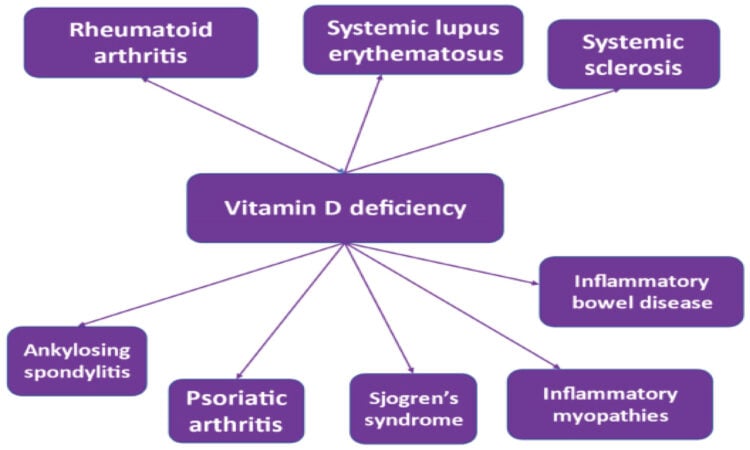In recent years, researchers have taken a closer look at vitamin D – not just for its well-known role in maintaining bone health, but also for its potential influence on the immune system. A growing body of evidence is revealing a connection between vitamin D levels and autoimmune diseases such as rheumatoid arthritis (RA), offering fresh insights into how a simple nutrient might impact complex, chronic conditions.
What Is The Link?
Vitamin D is essential for immune regulation. It helps modulate the immune response, ensuring the body can effectively fight infections without mistakenly attacking its own tissues—a defining feature of autoimmune diseases. When vitamin D levels are deficient, this immune regulation may be disrupted, potentially increasing the risk of autoimmune conditions or worsening their severity.
Rheumatoid arthritis, a chronic inflammatory disorder, occurs when the immune system erroneously targets the joints, leading to pain, swelling, and long-term joint damage. Multiple studies have found that individuals with RA often have lower-than-normal vitamin D levels. Some research even suggests that maintaining adequate vitamin D may reduce disease activity or lower the risk of developing RA altogether.
However, the relationship between vitamin D and autoimmune disorders remains complex. While supplementation may support immune health and reduce inflammation, it is not a cure or a guaranteed preventive measure.
Practical Steps
For those living with autoimmune conditions or concerned about their risk, here are a few proactive steps to consider:
Get tested: A simple blood test can determine your vitamin D levels.
Safe sun exposure: Aim for 15–30 minutes of sunlight per day, ideally in the early morning or late afternoon, to help your body naturally produce vitamin D.
Dietary sources: Include vitamin D-rich foods such as oily fish (like salmon and mackerel), egg yolks, fortified cereals, and dairy products in your meals.
Supplements: Take vitamin D supplements only under medical supervision, as excessive intake can lead to harmful side effects, including kidney issues and calcium imbalance.
The Bottom Line
Whether or not vitamin D proves to be a cornerstone in autoimmune treatment, it remains a crucial piece of the overall health puzzle. Supporting your immune system with the right nutrients, consistent sun exposure, and professional medical care may offer an added advantage in managing chronic conditions like rheumatoid arthritis—empowering you with one more tool for long-term wellness.











